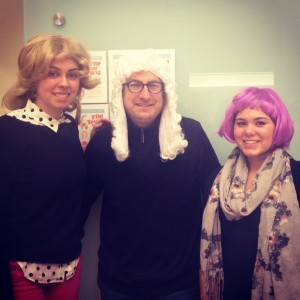
In the foreword of the Access to Justice in Civil and Family Matters Report: A Roadmap for Change, Chief Justice McLachlin said, “the problem of access to justice is not a new one. As long as justice has existed, there have been those who struggled to access it… we [are] increasingly failing in our responsibility to provide a justice system that [is] accessible, responsive and citizen-focused. Reports told us that cost, delays, long trials, complex procedures and other barriers were making it impossible for more and more Canadians to exercise their legal rights.”
The access to justice crisis is a problem that we often hear about. Government and independent groups have formed committees and associations, resulting in numerous reports and studies in connection with the topic. The subject is also routinely covered by the media.
Yet, despite the ubiquity and blatancy of the situation, one has to wonder whether all this is just talk rather than meaningful and effective action. More importantly, given the magnitude of the problem, one cannot help but wonder whether a feasible solution exists; one cannot help but question whether change will one day take place.
Well, someone once said that the first step toward change is awareness. For a while now, law schools have endeavoured to bring the issue to the attention of their students. They have created platforms, not only to discuss the problem, but also to create solutions.
Such endeavour was commended by Chief Justice McLachlin in a recent event organized by Pro Bono Students Canada. Recalling her days in law school, she told the audience about the complete lack of opportunities for students to become engaged. It was not until she was an articling student, she said, that Chief Justice McLachlin could engage in some pro bono work. But even then, it seemed like taking on these files was purely incidental. Working on pro bono files was an involuntary task in the sense that getting her hands on them depended on whether or not the lawyers would ask her to help out. There were no opportunities available for her to take them on out of her own initiative. It appears then, that for all their efforts to get students involved, Chief Justice McLachlin gives the law schools two thumbs up.
Yet, sometimes getting people’s attention requires extreme measures. It requires shocking, scandalous, and provoking behaviour. In the alternative, it requires wearing a funny wig. Indeed, this is the strategy used by the organizations behind the Flip Your Wig for Justice fundraiser to raise awareness about this very same issue. The funds raised from this event will be directed to raising awareness for access to justice and to supporting the seven Ontario-based non-profit organizations.
The fundraiser took place March 6. Those who participated did so by wearing a traditional judicial wig or wacky wig for the day, or by sponsoring someone to wear a wig for the day. In addition, organizations were encouraged to participate by matching the pledges raised by those employees who were “flipping their wig for justice.”
Nikki Gershbain, the National Director of Pro Bono Students Canada informs us that the event “engaged the profession at the very highest levels including by securing the full support of the Treasurer and Benchers, as well as all the Ontario law deans and judges at all levels of court in Ontario,” in addition to bringing “numerous law firms and other partners on board.” The event also “received coverage from the mainstream and legal press – including internationally,” said Ms. Gershbain.
Of course, students here at Osgoode also did their part. On March 5, Rebecca Lockwood and Miju Damodar, Osgoode Program Coordinators at Pro Bono Students Canada, as well as Pro Bono participant, Melissa Illardo, organized the event Wigzards of Oz(goode). Daniel Anisfeld, the Program Manager at Pro Bono Students Canada, was also in attendance to kick off this fun wig-making workshop/party. Aside from testing the creativity of Osgoode students, the event was organized with the purpose of promoting the fundraiser.
In addition, several students and Dean Sossin participated in the main event the following day and, according to our sources, they made Osgoode proud. “I think we did a great job,” said Melissa Illardo reporting about the overall success of the event. According to her, “we raised over $1000 and were voted runner up for our fun selfie that was taken with Dean Sossin on March 6 in Gowlings Hall!” For those who are curious, tons of pictures and selfies have been posted on the Flip Your Wig Facebook page and on Twitter @flipyourwig.
As for her own experience, Melissa said, “I wore my wig all day; started at Osgoode Hall and made my way all the way downtown in the wig.” And, although she “took in all the crazy stares” for her “it was worth it for such a worthy cause – and fun to boot!”
Although numbers have not been released, the word is that the event was very successful. “We have laid a foundation for a successful event for next year and have no doubt that it will continue to grow” said Ms. Gershbain, certainly pleased with the results.
The Chinese philosopher Lao Tzu once said, “the journey of a thousand miles begins with one step.” Let us recognize and congratulate the organizers and participants of this event for taking this very important step and wish them great success in their work and future campaigns.
